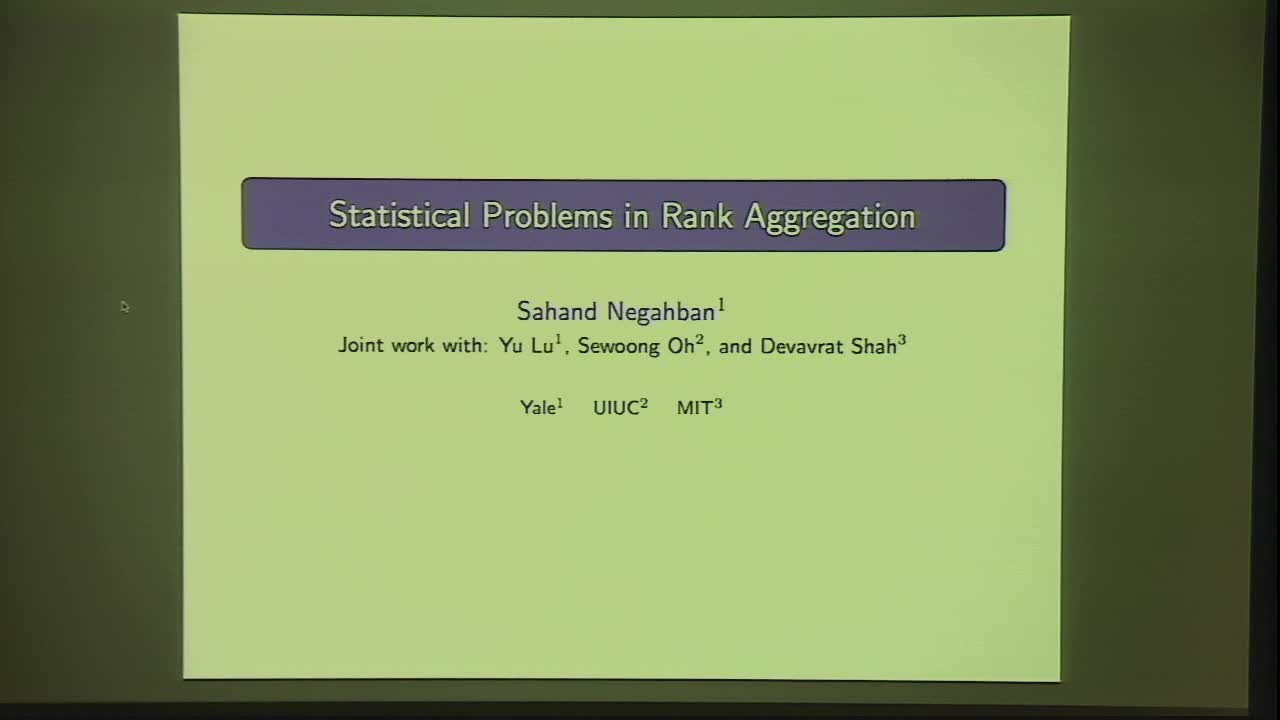Abstract
In recent years rank aggregation has received significant
attention from the machine learning community. The goal of such a problem
is to combine the (partially revealed) preferences over objects of a large
population into a single, relatively consistent ordering of those objects.
However, in many cases, we might not want a single ranking and instead opt
for individual rankings. We study a version of the problem known as
collaborative ranking. In this problem we assume that individual users
provide us with pairwise preferences (for example purchasing one item over
another). From those preferences we wish to obtain rankings on items that
the users have not had an opportunity to explore. We provide a theoretical
justification for a nuclear norm regularized optimization procedure, and
provide high-dimensional scaling results that show how the error in
estimating user preferences behaves as the number of observations increase.
